
In this edition of “I Wake Up Streaming,” novelist William Boyle rounds up his top streaming picks for the month of April. The column’s name is a play on the 1941 film I Wake Up Screaming, starring Betty Grable, Victor Mature, and Carole Landis. While the film’s title hits a pleasing note of terror and despair, changing that one letter speaks to the joy of discovering new films and rediscovering old favorites, as well as the panic that comes with being overwhelmed by options.
Criminal Passion (Criterion Channel)
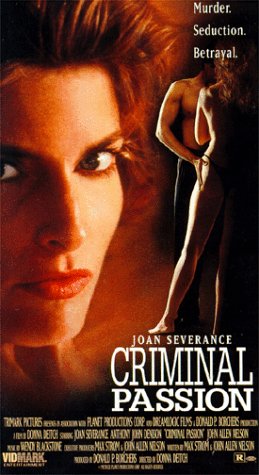 Part of the incredible eighteen-film Erotic Thrillers collection on the Criterion Channel, Donna Deitch’s Criminal Passion (aka Angel of Desire) is one of the lesser-known titles included and one I highly recommend if you’ve already seen classics like Body Heat, Bound, Dressed to Kill, Body Double, Crimes of Passion, Poison Ivy, and The Last Seduction and are looking for something that’s flown under the radar for too long. Deitch’s first film, Desert Hearts, is a masterpiece. Criminal Passion is her only other narrative feature credit. The rest are documentaries, TV miniseries, and episodes of network dramas. Imagine making a movie as wonderful as Desert Hearts and not being handed the keys to everything. A tragedy she doesn’t have a whole deep filmography to explore. But there’s this, and it’s pretty great. A B-movie erotic thriller from 1994. I don’t know under what circumstances Deitch came to direct this, but it’s apparent straightaway how much better it is than most of its straight-to-video contemporaries. It’s there in Joan Severance’s narration, the shot of her in the rearview mirror as she drives, the way the camera moves down hallways and streets. Beyond the stuff that’s striking visually, Deitch manages to subvert certain tropes. Severance’s Melanie is a tough, in-control cop—a part typically given to a man. Her pal on the force is gay. There’s no male gaze shit (not from behind the camera anyway, though there are plenty of gazing, empty-eyed guys that Melanie encounters). The love scenes don’t feature cheesy music; there’s a natural voyeuristic tension in them—they’re not inept or gross. Someone smarter than I am can probably do a lot with how exactly Deitch is blowing up the genre and yet working within its confines. And, make no mistake, this definitely has the bones of a straight-to-video ’90s erotic thriller. Severance is great. Those big suits! Those ties! She’s got the quality of ’40s and ’50s B actresses; I was put in mind of Beverly Michaels. There aren’t many erotic thrillers from this era directed by a woman, and it really makes a difference. All sorts of subtle touches vastly improve the material.
Part of the incredible eighteen-film Erotic Thrillers collection on the Criterion Channel, Donna Deitch’s Criminal Passion (aka Angel of Desire) is one of the lesser-known titles included and one I highly recommend if you’ve already seen classics like Body Heat, Bound, Dressed to Kill, Body Double, Crimes of Passion, Poison Ivy, and The Last Seduction and are looking for something that’s flown under the radar for too long. Deitch’s first film, Desert Hearts, is a masterpiece. Criminal Passion is her only other narrative feature credit. The rest are documentaries, TV miniseries, and episodes of network dramas. Imagine making a movie as wonderful as Desert Hearts and not being handed the keys to everything. A tragedy she doesn’t have a whole deep filmography to explore. But there’s this, and it’s pretty great. A B-movie erotic thriller from 1994. I don’t know under what circumstances Deitch came to direct this, but it’s apparent straightaway how much better it is than most of its straight-to-video contemporaries. It’s there in Joan Severance’s narration, the shot of her in the rearview mirror as she drives, the way the camera moves down hallways and streets. Beyond the stuff that’s striking visually, Deitch manages to subvert certain tropes. Severance’s Melanie is a tough, in-control cop—a part typically given to a man. Her pal on the force is gay. There’s no male gaze shit (not from behind the camera anyway, though there are plenty of gazing, empty-eyed guys that Melanie encounters). The love scenes don’t feature cheesy music; there’s a natural voyeuristic tension in them—they’re not inept or gross. Someone smarter than I am can probably do a lot with how exactly Deitch is blowing up the genre and yet working within its confines. And, make no mistake, this definitely has the bones of a straight-to-video ’90s erotic thriller. Severance is great. Those big suits! Those ties! She’s got the quality of ’40s and ’50s B actresses; I was put in mind of Beverly Michaels. There aren’t many erotic thrillers from this era directed by a woman, and it really makes a difference. All sorts of subtle touches vastly improve the material.
We Own the Night (Hulu)
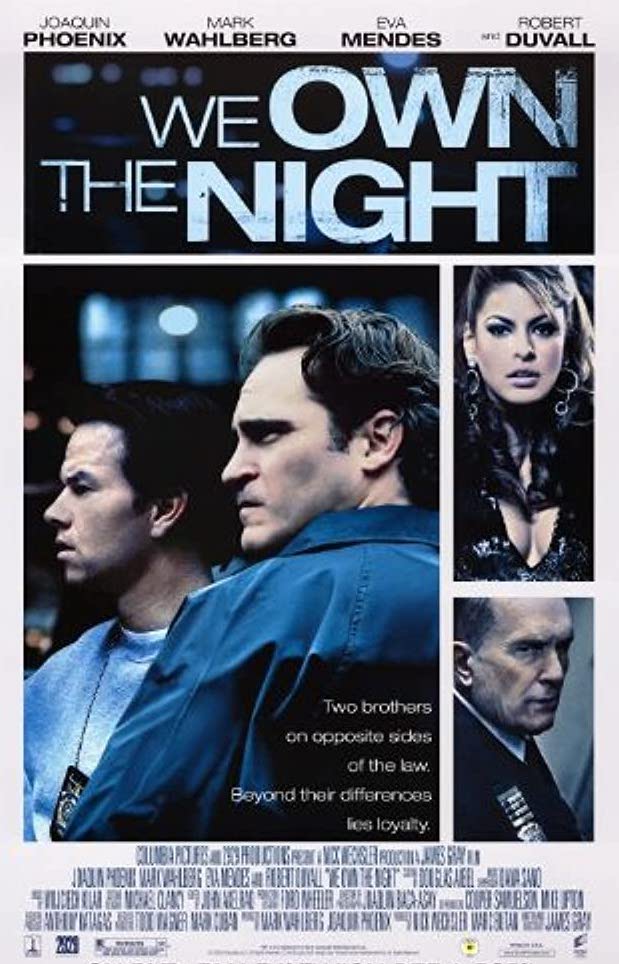 James Gray is one of my artistic heroes—I’ve written about him in this column before and will probably go through his films one by one as they pop up on streaming services. His 2007 neo-noir, We Own the Night, is an underrated modern classic, one that’s unfortunately been buried by time a bit. It came out the year after The Departed, which partly explains its failure, no doubt, but Gray’s films have always struggled to find purchase with American audiences (he’s revered in France). Gray’s major concern isn’t with plot but with character. Set in the late ’80s, We Own the Night is scuzzy with city details, and it nails all of them. It has one of the greatest car chases ever. Up there with sequences from The Seven-Ups, The French Connection, Bullitt, Dirty Mary Crazy Larry, Ronin, Vanishing Point, and The Driver. Gray claims he studied every chase put on film and determined that none of them used weather and POV effectively. The result: a gritty, claustrophobic, gray-hued chase that rattles the walls of the viewer’s imagination. Gray’s use of color is striking. In a making-of documentary, he spoke about wanting to leave the color blue out of the movie altogether. Realizing that this would be difficult with cops as main characters, the blues are restrained to sequences in the police station. The resulting murkiness is true to the biggest and smallest of Brooklyn darknesses. Joaquin Phoenix turns in one of his best performances as Bobby Green, never hamming it up with a cartoonish accent the way so many actors do when they’re in Brooklyn mode. Robert Duvall is tough and tender as Burt Grusinsky, father to Phoenix’s Bobby and Mark Wahlberg’s Joseph. Eva Mendes is ethereal. Gray knows Brooklyn the way almost no other contemporary filmmaker I can think of does. I grew up in Brooklyn in the ’80s and this movie gets everything right: the look and the sounds and the colors and the clothes and the frantic weariness. The period detail is astounding. It’s sad to think how little that was appreciated when the movie was released. It feels like the best of Scorsese and Lumet. Not slick. Never easy. Gritty and raw and slopping around in the dirty streets. Gray’s a master at silence and spectacle.
James Gray is one of my artistic heroes—I’ve written about him in this column before and will probably go through his films one by one as they pop up on streaming services. His 2007 neo-noir, We Own the Night, is an underrated modern classic, one that’s unfortunately been buried by time a bit. It came out the year after The Departed, which partly explains its failure, no doubt, but Gray’s films have always struggled to find purchase with American audiences (he’s revered in France). Gray’s major concern isn’t with plot but with character. Set in the late ’80s, We Own the Night is scuzzy with city details, and it nails all of them. It has one of the greatest car chases ever. Up there with sequences from The Seven-Ups, The French Connection, Bullitt, Dirty Mary Crazy Larry, Ronin, Vanishing Point, and The Driver. Gray claims he studied every chase put on film and determined that none of them used weather and POV effectively. The result: a gritty, claustrophobic, gray-hued chase that rattles the walls of the viewer’s imagination. Gray’s use of color is striking. In a making-of documentary, he spoke about wanting to leave the color blue out of the movie altogether. Realizing that this would be difficult with cops as main characters, the blues are restrained to sequences in the police station. The resulting murkiness is true to the biggest and smallest of Brooklyn darknesses. Joaquin Phoenix turns in one of his best performances as Bobby Green, never hamming it up with a cartoonish accent the way so many actors do when they’re in Brooklyn mode. Robert Duvall is tough and tender as Burt Grusinsky, father to Phoenix’s Bobby and Mark Wahlberg’s Joseph. Eva Mendes is ethereal. Gray knows Brooklyn the way almost no other contemporary filmmaker I can think of does. I grew up in Brooklyn in the ’80s and this movie gets everything right: the look and the sounds and the colors and the clothes and the frantic weariness. The period detail is astounding. It’s sad to think how little that was appreciated when the movie was released. It feels like the best of Scorsese and Lumet. Not slick. Never easy. Gritty and raw and slopping around in the dirty streets. Gray’s a master at silence and spectacle.
Ray Meets Helen (Tubi, Freevee, Roku)
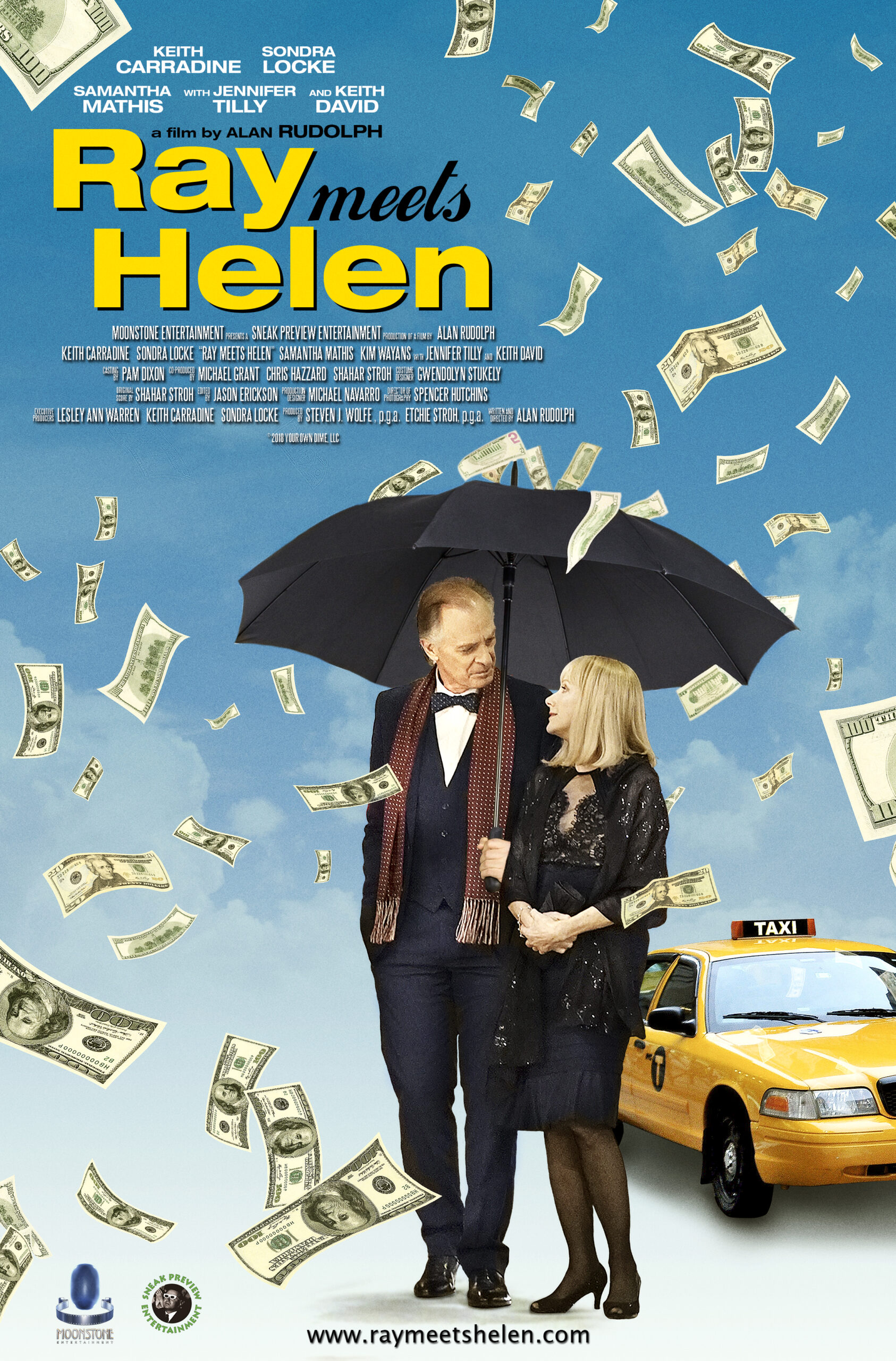 Alan Rudolph is another artistic hero of mine—I’ve also written about other films of his in this column. 2017’s Ray Meets Helen, his most recent, and only his second film of the twenty-first century, is massively underappreciated. It received negative reviews and has mostly fallen through the cracks. I loved it when I first saw it and have returned to it often in the last several years. During the worst of Covid, I was in a movie club with some pals that lasted for a while—about a year, I think. Ray Meets Helen was my last pick and it turned out to be the last movie of the club’s existence. Everyone wanted out after that, ha. I’m this movie’s number one fan, and I really don’t understand why it gets a bad rap . . . or no rap at all. It stars Sondra Locke (in her final film performance) and Keith Carradine as a couple of old-timers who meet by chance and fall in love. I value the movie for its weirdness alone. And it’s very, very weird, which is a great thing. Locke and Carradine infuse the proceedings with a hangdog melancholy; their scenes together are sad and lovely. At times, this feels cut from the same cloth as Twin Peaks: The Return or even Mulholland Drive and not in a derivative way. It’s great to see Carradine and Locke, as well as Samantha Mathis, Keith David, Kim Wayans, Cynda Williams, and Jennifer Tilly shot so lovingly. It doesn’t look as good as a film like Rudolph’s masterful Choose Me (and I guess that has to do with the digital flatness), but he does a lot with very little. Romantic, sprawling, bizarre in the best possible way.
Alan Rudolph is another artistic hero of mine—I’ve also written about other films of his in this column. 2017’s Ray Meets Helen, his most recent, and only his second film of the twenty-first century, is massively underappreciated. It received negative reviews and has mostly fallen through the cracks. I loved it when I first saw it and have returned to it often in the last several years. During the worst of Covid, I was in a movie club with some pals that lasted for a while—about a year, I think. Ray Meets Helen was my last pick and it turned out to be the last movie of the club’s existence. Everyone wanted out after that, ha. I’m this movie’s number one fan, and I really don’t understand why it gets a bad rap . . . or no rap at all. It stars Sondra Locke (in her final film performance) and Keith Carradine as a couple of old-timers who meet by chance and fall in love. I value the movie for its weirdness alone. And it’s very, very weird, which is a great thing. Locke and Carradine infuse the proceedings with a hangdog melancholy; their scenes together are sad and lovely. At times, this feels cut from the same cloth as Twin Peaks: The Return or even Mulholland Drive and not in a derivative way. It’s great to see Carradine and Locke, as well as Samantha Mathis, Keith David, Kim Wayans, Cynda Williams, and Jennifer Tilly shot so lovingly. It doesn’t look as good as a film like Rudolph’s masterful Choose Me (and I guess that has to do with the digital flatness), but he does a lot with very little. Romantic, sprawling, bizarre in the best possible way.
Lured Innocence (Prime Video, Tubi)
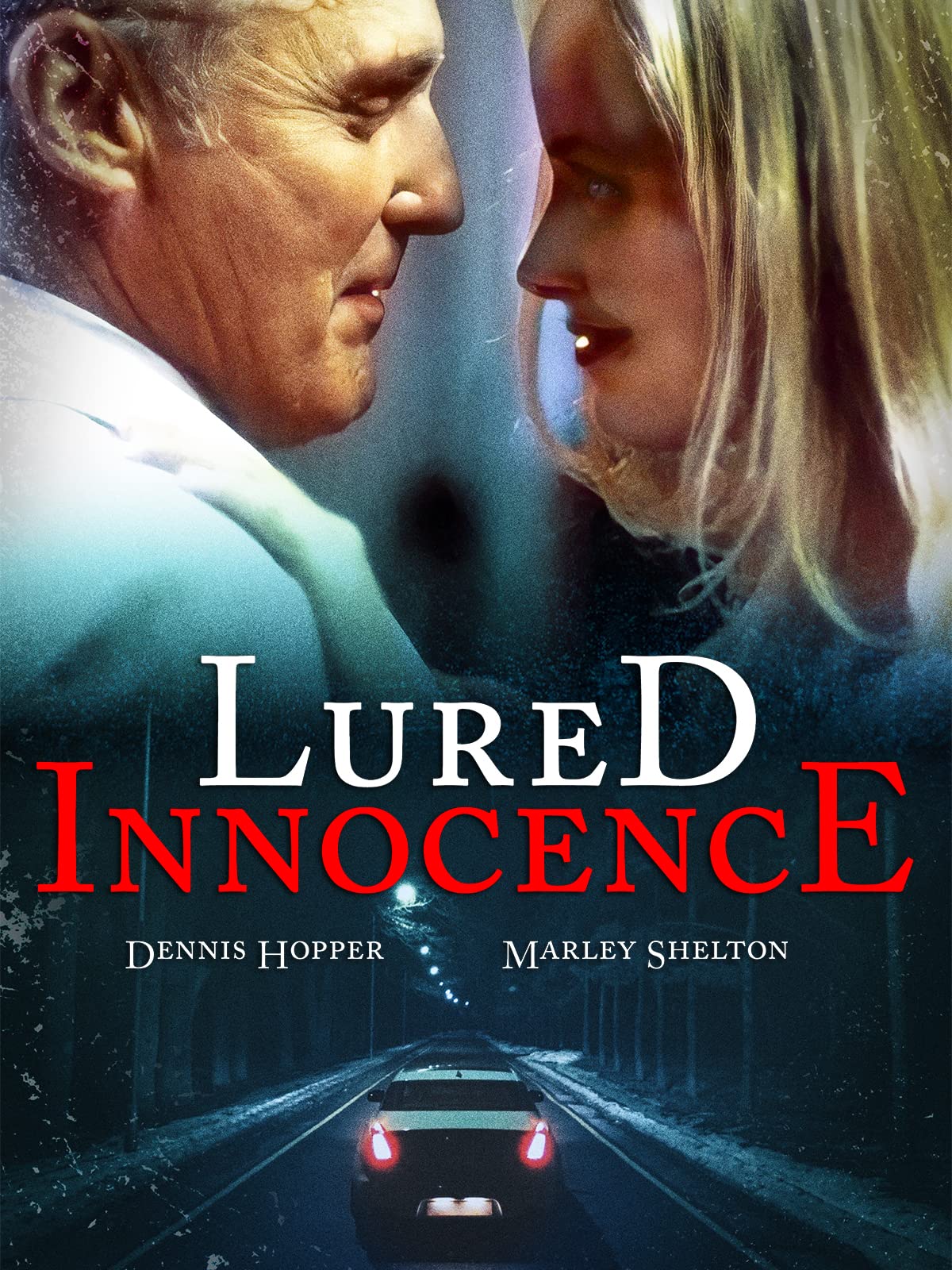
This is not really an erotic thriller, though it’s sort of advertised that way and edges somewhat in that direction, and I can’t exactly recommend it as a good movie, but it’s a weird little affair that’s hyper-specific to a bygone era. Let’s start with the crazy cast: Dennis Hopper, Marley Shelton, fucking Brian Krakow from My So-Called Life (I don’t care what his real name is, he’ll always be Brian Krakow to me), Cheri Oteri of Saturday Night Live fame, and Talia Shire. Filmed on location in Kosciusko, Mississippi (as well as in Los Angeles and Phoenix) in 1997, though it wasn’t released until 2000, it’s a lightweight B neo-noir that borrows the plot of Diabolique and has some touches of strangeness and absurdity: Hopper coming through Shelton’s window with a big clunky CD player as a gift, Krakow’s character fainting during sex, Shelton sitting sweaty in front of a blowing fan while a sax plays, Hopper calling God a “prickless shit,” that wild-voiced judge at the end. Hopper asks Krakow, “So, did you fuck her?” at one point, and it feels like a body bag being zipped over the ’90s.
Dinner Rush (Prime Video, Tubi, VUDU)
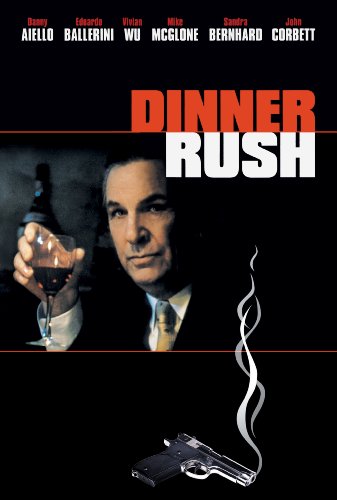
One of my favorite first-time watches of the year. Had somehow never even heard of it. Also released in 2000 and feeling like a product of that bygone era when small movies like this seemed to be a dime a dozen. I wasn’t sure how I’d respond in the beginning—there’s some brief, hectic NYPD Blue style camerawork that almost made me shut it off and the credits feel like they’re for a shithouse TV show, but it gets really good after that when it becomes an ensemble piece set over a single night at a restaurant in Tribeca. A great Danny Aiello performance is the centerpiece, but the cast is full of familiar faces who turn in good performances: Eduardo Ballerini, Kirk Acevedo, Manny Pérez, Mark Margolis, Vivian Wu, Zainab Jah, Polly Draper, John Rothman, Ajay Naidu, Jamie Harris, Michael McGlone, John Corbett, Summer Phoenix, and Sandra Bernhard. It might be a stretch to say it could’ve been an influence on The Bear, but it’s not a stretch to say it’s a forgotten little gem. Would pair well with Big Night.
William Boyle is the author of the novels Gravesend, The Lonely Witness, A Friend Is a Gift You Give Yourself, City of Margins, and Shoot the Moonlight Out, all available from Pegasus Crime. His novella Everything Is Broken was published in Southwest Review Volume 104, numbers 1–4. His website is williammichaelboyle.com.
Illustration: Jess Rotter
